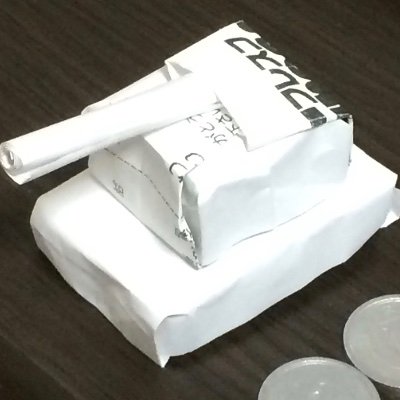結果
| 問題 | No.430 文字列検索 |
| コンテスト | |
| ユーザー |
 cureskol cureskol
|
| 提出日時 | 2022-09-11 14:29:48 |
| 言語 | C++17 (gcc 15.2.0 + boost 1.89.0) |
| 結果 |
AC
|
| 実行時間 | 45 ms / 2,000 ms |
| コード長 | 5,151 bytes |
| 記録 | |
| コンパイル時間 | 2,213 ms |
| コンパイル使用メモリ | 215,548 KB |
| 最終ジャッジ日時 | 2025-02-07 04:17:26 |
|
ジャッジサーバーID (参考情報) |
judge5 / judge1 |
(要ログイン)
| ファイルパターン | 結果 |
|---|---|
| sample | AC * 4 |
| other | AC * 14 |
ソースコード
#pragma region template
#pragma GCC optimize("Ofast")
#include <bits/stdc++.h>
using namespace std;
#ifdef __LOCAL
#include <debug>
#else
#define debug(...) void(0)
#endif
using ll=long long;
using ld=long double;
using vi=vector<int>;
using vll=vector<ll>;
using pi=pair<int,int>;
using pll=pair<ll,ll>;
#define overload2(a,b,c,...) c
#define overload3(a,b,c,d,...) d
#define overload4(a,b,c,d,e,...) e
#define overload5(a,b,c,d,e,f,...) f
#define TYPE1(T) template<typename T>
#define TYPE2(T,U) template<typename T,typename U>
#define TYPE(...) overload2(__VA_ARGS__,TYPE2,TYPE1)(__VA_ARGS__)
#define TYPES1(T) template<typename... T>
#define TYPES2(H,T) template<typename H,typename... T>
#define TYPES(...) overload2(__VA_ARGS__,TYPES2,TYPES1)(__VA_ARGS__)
#define REP4(i,s,n,d) for(int i=(s);i<(n);i+=(d))
#define REP3(i,s,n) REP4(i,s,n,1)
#define REP2(i,n) REP3(i,0,n)
#define REP1(n) REP2(tomato,n)
#define REP(...) overload4(__VA_ARGS__,REP4,REP3,REP2,REP1)(__VA_ARGS__)
#define RREP4(i,s,n,d) for(int i=(n)-1;i>=s;i-=d)
#define RREP3(i,s,n) RREP4(i,s,n,1)
#define RREP2(i,n) RREP3(i,0,n)
#define RREP1(n) RREP2(tomato,n)
#define RREP(...) overload4(__VA_ARGS__,RREP4,RREP3,RREP2,RREP1)(__VA_ARGS__)
#define ALL(v) v.begin(),v.end()
#define RALL(v) v.rbegin(),v.rend()
#define SORT(v) sort(ALL(v))
#define RSORT(v) sort(RALL(v))
#define REVERSE(v) reverse(ALL(v))
#define UNIQUE(v) SORT(v),v.erase(unique(ALL(v)),v.end())
TYPES(T) void input(T&... a){ (cin>>...>>a); }
#define DECLARE(T,...) T __VA_ARGS__;input(__VA_ARGS__);
#define INT(...) DECLARE(int,__VA_ARGS__)
#define STR(...) DECLARE(string,__VA_ARGS__)
#define LL(...) DECLARE(long long,__VA_ARGS__)
#define CHR(...) DECLARE(char,__VA_ARGS__)
#define DBL(...) DECLARE(double,__VA_ARGS__)
#define VI(n,v) vi v(n);cin>>v;
#define VLL(n,v) vll v(n);cin>>v;
TYPE(T) istream&operator>>(istream&is,vector<T>&v){
for(auto&a:v)cin>>a;
return is;
}
TYPE(T) ostream&operator<<(ostream&os,const vector<T>&v){
if(&os==&cerr)os<<"[";
REP(i,v.size()){
os<<v[i];
if(i+1<v.size())os<<(&os==&cerr?",":" ");
}
if(&os==&cerr)os<<"]";
return os;
}
TYPE(T,S) istream&operator>>(istream&is,pair<T,S>&p){
cin>>p.first>>p.second;
return is;
}
TYPE(T) using pq=priority_queue<T>;
TYPE(T) using pqg=priority_queue<T,vector<T>,greater<T>>;
TYPE(T) T pick(queue<T>& que){assert(que.size()); T a=que.front();que.pop();return a;}
TYPE(T) T pick(pq<T>& que){assert(que.size()); T a=que.top();que.pop();return a;}
TYPE(T) T pick(pqg<T>& que){assert(que.size()); T a=que.top();que.pop();return a;}
TYPE(T) T pick(stack<T>& sta){assert(sta.size()); T a=sta.top();sta.pop();return a;}
string YES(bool f=true){return (f?"YES":"NO");}
string Yes(bool f=true){return (f?"Yes":"No");}
string yes(bool f=true){return (f?"yes":"no");}
constexpr int INF=1e9+7;
constexpr ll LINF=ll(1e18)+7;
constexpr ld EPS=1e-10;
vi iota(int n){vi a(n);iota(ALL(a),0);return a;}
TYPE(T) void fin(T a){cout<<a<<endl;exit(0);}
TYPE(T) bool chmax(T &a,T b){return (a<b&&(a=b,true));}
TYPE(T) bool chmin(T &a,T b){return (a>b&&(a=b,true));}
TYPES(T,Ns)
auto make_vector(T x,int n,Ns ...ns){
if constexpr(sizeof...(ns)==0)return vector<T>(n,x);
else return vector(n,make_vector<T>(x,ns...));
}
bool in(const ll S,const int a){return (S>>a)&1;}
int popcount(const ll S){return __builtin_popcountll(S);}
#pragma endregion template
template<int char_size,int margin>
struct Trie_abst{
struct Node{
int nxt[char_size],
pre,//手前
count,//自分の個数
ancestor_count;//(自分を含まない)子孫の個数
Node(int pre):pre(pre),count(0),ancestor_count(0){
memset(nxt,-1,sizeof(nxt));
}
};
vector<Node> nodes;
Trie_abst():nodes(1,Node(-1)){}
int add(const string&s,int num=1){
int now=0;
for(const char&c:s){
int id=c-margin;
if(!~nodes[now].nxt[id]){
nodes[now].nxt[id]=nodes.size();
nodes.emplace_back(Node(now));
}
nodes[now].ancestor_count+=num;
now=nodes[now].nxt[id];
}
nodes[now].count+=num;
return now;
}
int node_idx(const string&s){
// s の Node を返す 追加されて無ければ -1
int now=0;
for(const char&c:s){
int id=c-margin;
if(!~nodes[now].nxt[id])return -1;
now=nodes[now].nxt[id];
}
return now;
}
int count(const string&s){
int a=node_idx(s);
return (~a?nodes[a].count:0);
}
//sは含まない
int preifx_count(const string&s){
int now=0,sum=0;
for(const char&c:s){
int id=c-margin;
if(!~nodes[now].nxt[id])break;
sum+=nodes[now].count;
now=nodes[now].nxt[id];
}
return sum;
}
//sは含まない
int ancestor_count(const string&s){
int a=node_idx(s);
return (~a?nodes[a].ancestor_count:0);
}
};
using Trie=Trie_abst<26,'A'>;
int main(){
ios::sync_with_stdio(false);
cin.tie(nullptr);
Trie tr;
STR(s);
REP(i,s.size()){
string now;
REP(j,10){
if(i+j>=s.size())break;
now+=s[i+j];
tr.add(now);
}
}
int ans=0;
INT(m);
REP(_,m){
STR(t);
ans+=tr.count(t);
}
fin(ans);
}
